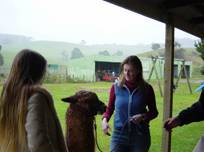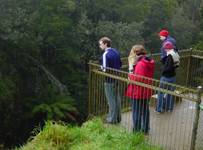Orientation to a Rural Community
The international and national evidence on inequalities in health is compelling. We know that people who live in disadvantaged circumstances have more illnesses, enhanced distress, are more disabled, and live shorter lives than those who are affluent.
 Health inequalities are an endemic characteristic of all modern societies, but the degrees of the differential vary geographically. People who live in rural and remote areas experience poorer health status than their urban counterparts. The social determinants of health have been acknowledged for many years, and social disadvantage is increasingly being recognised as a risk factor for many diseases. Health inequalities are an endemic characteristic of all modern societies, but the degrees of the differential vary geographically. People who live in rural and remote areas experience poorer health status than their urban counterparts. The social determinants of health have been acknowledged for many years, and social disadvantage is increasingly being recognised as a risk factor for many diseases.
By becoming familiar with local ways of life, health care professionals can incorporate principles of prevention and health promotion into rural practice as a way of addressing the health needs of rural populations. One goal of rural placements is to develop culturally sensitive health professionals who can deliver care in rural settings. By actually living and practicing in a rural community, students can learn that rural healthcare presents unique challenges as well as opportunities for a positive, high quality lifestyle, both personally and professionally.
Through participating in rural community activities students are able to gain a better understanding of the economic and lifestyle issues that shape the local communities in which they will be living and working. Understanding local community lifestyle and knowledge will enable students to approach rural practice from an informed and contextual stance. Approaching rural practice from an urban perspective simply does not work.
-
 Have conversations with local people. This can provide students with important insights into a community's make-up, its range of views and experiences, and its hidden assets and problem areas. Have conversations with local people. This can provide students with important insights into a community's make-up, its range of views and experiences, and its hidden assets and problem areas.
- Shop locally and go to the places local people frequent.
|




